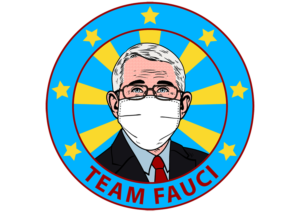Chemo brain means changes in memory, concentration, and the way a person is able to think.
These problems are reported during and after chemotherapy treatment.
Is it a Real Thing?
Absolutely! It is quite common and is often reported by folks going through treatment for cancer. I participated in a study in 1998 and 1999 by University of California San Francisco during which a researcher came to my home with a computer and performed a set of tests just before I began chemo, during chemo, 6 months after and one year after chemo ended. There was a marked decline in word usage, reading proficiency and math skills as well as spatial ability during chemo that was worse following chemo and showed improvement at the one-year mark. My test results clearly showed the effects of chemo brain.
But the term chemo brain is misleading. Doctors now think that these problems could be due to a variety of reasons, including the different cancer treatments and the cancer itself. Doctors might refer to these problems as:
- cancer related cognitive impairment
- cancer associated cognitive decline
- mild cognitive impairment
- cognitive dysfunction
Cognition basically means thinking. In psychology, it means the way you process and recall information and the way you understand the world and how it works.
Signs and symptoms
Most people who have cognitive changes can do everyday things. But they may notice they are not able to do some things quite as well as before they had treatment for cancer.
Symptoms can include:
- memory loss – forgetting things that you normally remember
- difficulty thinking of the right word for a particular object
- difficulty following the flow of a conversation
- trouble concentrating or focusing on one thing
- difficulty doing more than one thing at a time (multi-tasking)
- more difficulty doing things you used to do easily, such as adding numbers up in your head
- fatigue (tiredness and lack of energy)
- confusion
- mental fogginess
The changes are often mild and very subtle. But if you have them, they can reduce your quality of life.
A key issue to remember about chemo brain is that is common and that it does improve with time and distance from treatment. Many folks experience stress due to chemo brain and feel frustrated by their inability to perform as they did before treatment. The stress, itself, can make chemo brain worse.
Who gets chemo brain?
It is not certain how many people with cancer have mild cognitive impairment. Studies looking at this have reported a wide range of different figures. It can range from 17 out of 100 people (17%) to 50 in 100 people (50%).
It can affect people with different types of cancer and at different times (generally during and after treatment). It can affect men and women of all ages.
What causes it?
It is not clear what causes these cognitive changes in people with cancer. But research suggests that it could be a combination of factors including:
- the diagnosis of cancer and all the stress and emotion that this brings
- the cancer itself
- cancer treatment such as chemotherapy, hormone therapy, radiotherapy, and some targeted drugs
- very intensive treatment such as high dose chemotherapy followed by a stem cell transplant
- side effects of treatment such as fatigue, low levels of red blood cells in the blood (anemia), sleep disturbances or hormonal changes
- low mood, stress, and anxiety
People might be more likely to have cognitive impairment following a cancer diagnosis and treatment if they:
- are older
- already have problems with memory and thinking or experience anxiety and depression
How chemo brain might affect you
- The symptoms of cognitive impairment can come and go. How much you notice them seems to depend on what you are doing. For example, if you need to juggle a few things as part of your normal day, you might notice it more than someone who doesn’t. People often notice it more when they go back to work. Tiredness usually makes the symptoms worse.
- For most people, the symptoms have either gone or improved a lot within a year of ending treatment. But for some people the symptoms can be long term and may continue for years after treatment has finished.
- Research suggests that people who have mild cognitive impairment are also more likely to have depression, anxiety, and fatigue. We do not know whether mild cognitive impairment leads to these problems or whether having depression, anxiety or fatigue makes you more likely to develop cognitive impairment.
Tips for coping with chemo brain
There are a few things that you can do that should help you cope better with chemo brain:
- Try to keep your life as simple as possible.
- Avoid trying to do too many things at the same time.
- It might be helpful to write yourself notes and stick them up where you can see them.
- Write lists about what you need to do, things you need to buy and where you have left important things.
- Try to do the most difficult tasks earlier in the day.
- When you are away from home, it might help to carry a notebook to write things down or put them in your phone.
- Before your appointment, write a list of questions and things you want to talk about with your doctor or medical team members.
- Keep a record of your previous hospital appointments and planned appointments.
- You could ask if you can record conversations with your doctor if you think this might help.
- When arranging to meet someone or organizing an event, it may be helpful to write the details down and tell someone else.
- Try to talk to people somewhere quiet with few distractions.
- You could keep a calendar on your wall or use the calendar on your phone.
- Try to follow a healthy diet.
- Get a good night’s sleep and rest in the day when you need to – try to avoid becoming over tired.
- Try to exercise each day if possible, this can help you sleep better and lift your mood.
- Keeping your mind active may help – for example, doing crosswords, sudoku and puzzles.
It might help to tell those around you about the problems you are having with thinking and concentration. They might have noticed some changes already. If family and friends are aware, they can help you with some of the tips given above.
You might find some activities or tasks too stressful right now. It might help to avoid these things altogether if possible. Your family and friends can help with this. You may only have to do this for a short time until you feel more able to cope.
Just not worrying about chemo brain can help make it less severe.





